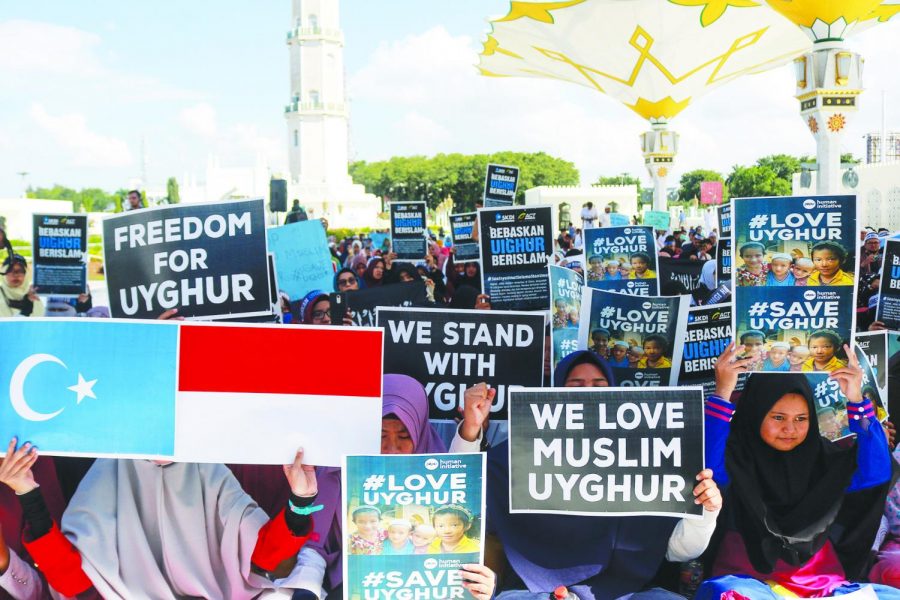Crisis in China
China cannot pretend that the cultural genocide of Uighurs Muslim is an anti-terrorist campaign
Muslims in Indonesia protest against there own government and press for remaining silent on the China’s oppression of ethnic Uighurs.
Over the past year, western countries are becoming aware of the suppression of Uighur Muslims by their own government in China. Uighurs are a Muslim minority who mostly live in a large region of China called Xinjiang, home to around 11 million Uighurs.
Since the Chinese communist party came into power, they have had concerns about the Uighurs along with many other minority groups. Those worries only intensified after al-Qaeda’s attack on America and with growing Islamaphobia from countries all over the world. The Chinese government used those occurrences as pretexts to crack down on the Uighurs and began the first round of suppression.
The changes were not taken well by the Uighur community in Xinjiang and acts of terrorism and violence against the Han race, the ethnic majority in China unsurprisingly broke out. Those actions only fueled the government hostility towards the Uighurs and made them crack down even more on Xinjiang. Security was increased greatly increased as government officials now considered the providence “out of control.”
It wasn’t until Xi Jinping came to power in 2013 that China greatly tightened their grasp on the Uighurs. Xi Jinping practically doubled China’s security budget and tripled it in Xinjiang. Jinping did another detrimental thing. He appointed Chen Quanguo, a man with a track record of restricting the rights of minorities in Tibet as secretary of the province of Xinjiang.
Since Chen Quamguo’s appointment, he has taken the same methods he used in Tibet and implemented them in Xinjiang. So far he has done everything he can to suppress religion and wipe out ethnic Uighurs, from bulldozing ancient mosques to outright banning the Uighur language, hijabs, and other traditional Muslim practices. Uighurs now have no right to practice their religion and any defiers are sent away to internment camps and often never seen by their families again.
In fact, it is estimated that currently about 1 million Uighurs are being held in detention camps. Within these camps, they are forced to eat pork, drink alcohol, and denounce themselves as Muslims
This crackdown has not come without international scrutiny. In one case, the UN noted that it was “deeply concerned” by the news that China had forced as many as 1 million Uighurs into internment camps in Xinjiang.
Along with that, the US House of Representatives recently approved a Uighur Act that called for penalties on China’s officials and would require the Trump administration to strengthen its response to China’s oppression on its Muslim minority in Xinjiang.
Besides the United States and a few other western countries, no other countries have formally come out and spoken against Chinas actions. This is especially surprising considering a large number of Muslim dominated countries that are staying quiet.
Perhaps one of the reasons why more countries have not spoken out is due to their fear of economic retaliation by China. Due to the size of its economy, China truly can have an effect on the economies of smaller countries throughout the world if it chooses to cut ties with them. If more countries banded together and joined the U.S. in taking a stand against China, we could end China’s unfair treatment of their minority groups. The world needs to remember the events of history and take action before the problem in China turns into another genocide. To date, there has been some talk in Congress about it but no real action has been taken. The US is taking the right steps on this issue and is setting a good example, but more needs to be done.

Sophomore Jane Elkins is an Editorials Editor for the A-Blast. This is her second year working on the A-Blast, as she worked as a staff writer the year...










